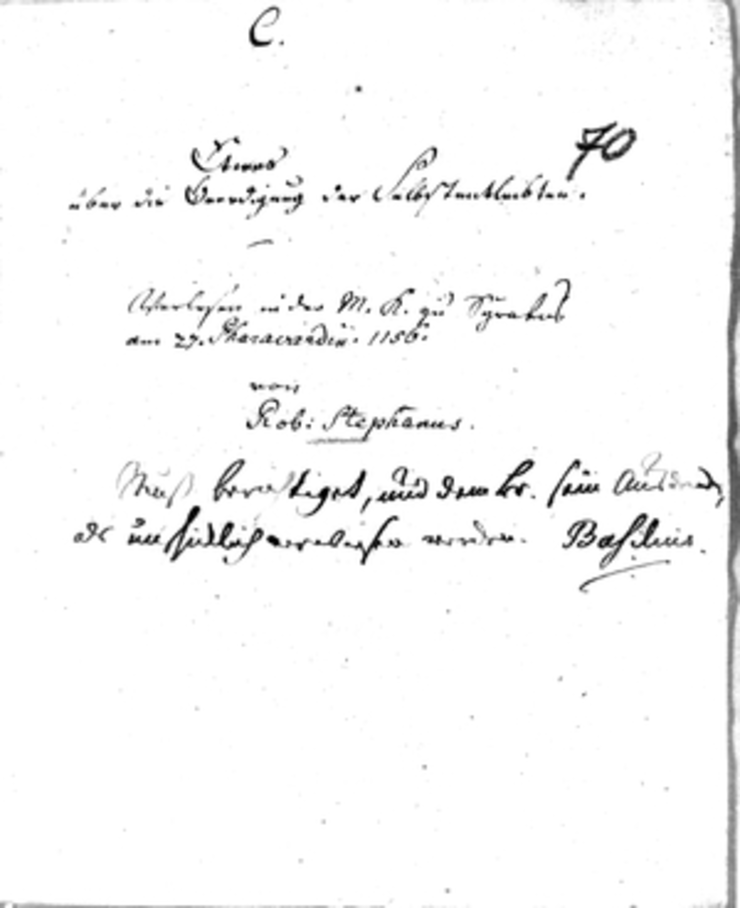
The goal of the Illuminati Order, founded in 1776, was the enlightenment and moral perfection of its members; this was to be achieved through the imparting of knowledge and the education of its members by their superiors in various "classes" and secret degrees. The previous research on the Illuminati has therefore mainly concentrated on the organizational structure as well as on the so-called 'higher knowledge' of the order as its actual arcanum. As documents of the order one knew consequently so far above all printed papers, degree drafts and the correspondence of the leading members among themselves; the temporal emphasis lay thereby in the years up to the prohibition of the order in Bavaria 1784/85.
In contrast, the project pursued at the Gotha Research Centre since autumn 2013 focuses on a completely new source corpus that has received little attention from researchers to date: it involves around 150 unprinted essays from the years 1783-1787 that have survived in the estate of Johann Joachim Christoph Bode (1731-1793), the so-called "Schwedenkiste". The spectrum of topics covered by these texts, most of which were read out at the meetings of central German Illuminati, is broad: it ranges from epistemology and practical Philosophy to ideological-moral questions and proposals for economic and social reform. The essays thus reflect the interests of the late Enlightenment public in the sum of their diversity and thus allow an insight not only into Enlightenment-motivated reform efforts of the Illuminati, but also into the possibilities and scope of so-called 'popular enlightenment', which had one of its centers especially in Gotha.
The evaluation of this unique source material and its embedding in neighboring sources such as the protocols of the Gotha "Minervalkirche" and the secret correspondence between the local members of the lower degrees and their 'Unknown Superior' Bode provides the opportunity to explore both the communicative practice within the Illuminati Order and the relations of the internal debates to general discourses of the German late Enlightenment far more profoundly than before. The corpus radically changes the view of the order: the focus of analysis is no longer on secrecy, exclusivity, and degree order, but on everyday order practice, membership leadership, and the relationship to the institutions and issues of the publicly visible Enlightenment. The culture of discussion within local groupings can be meticulously contextualized microhistorically by comparing the essays with other sources. As close as one can get to and within the Illuminati Order here, this was previously unthinkable. The nimbus of the nebulous and conspiratorial, which is still attached to the Illuminati Order and its members, can thus be countered by serious, source-based research on a new level. On the other hand, the essays - often one topic found several competing editors - can be related to each other as well as to published writings of 'public' discourse, revealing a topography of debates and shedding new light on the Late Enlightenment as a whole.
With the connection to the Gotha Research Centre, our project returns geographically to the place where most of the essays were written and for which we can most densely describe the interconnectedness of societies, citizens, and court. With the construction of an internet platform inviting researchers from all over the world to participate, The Gotha Illuminati Research Base, we are working at the same moment to develop the location Gotha with its rich archive and library holdings into a center of Illuminati research.